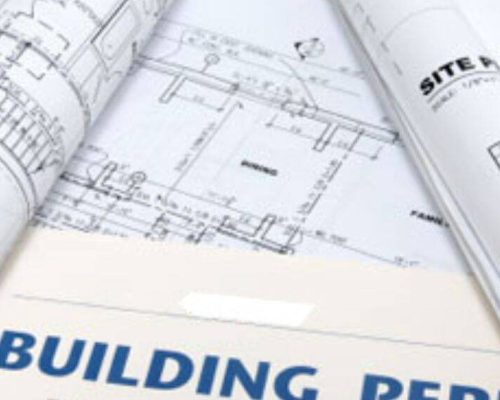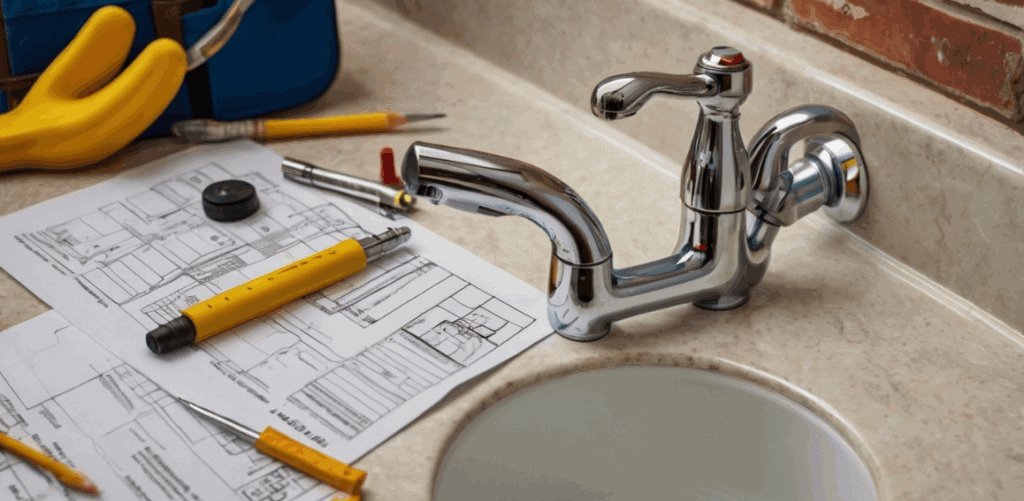
It’s not only about having a leak fixed or installing pipes; plumbers help keep your home and costs safe from further issues. Many homeowners sign contracts quickly, not taking the time to understand what they are agreeing to. This is the point where open communication with your partner matters the most. When you have a detailed and clear plumbing contract, you’re aware of what is covered, what isn’t and you can clear your doubts then and there.
A lot of plumbing issues happen due to a lack of clear understanding of what the work should do. Vague pricing, unclear timelines or hidden fees might bring major problems once the work has started. Sadly, being unclear about details can lead some to spend more money or have unexpected problems which could have been avoided when you had a clear discussion with your plumber.
The key facts about the job, the materials needed, the warranties involved, what you will pay and any dangers should be shared with you by your plumber before signing for services. The article explains the key information your plumber should share with you ahead of signing a contract, to stop you from getting surprised by any extra bills and feel confident about their work.
Before agreeing to the service, your plumber must tell you about the work, the materials, any guarantees, the costs and any problems that may occur. Here are the 10 things your plumber should explain before you agree to a contract, to help you avoid hidden fees and feel more comfortable about your home being worked on.
10 Things To Keep In Mind Before Signing a Plumbing Contract
1. Scope of Work and Services
Before signing a contract, the plumber should provide a detailed breakdown of the work to be completed. This includes specifying exactly what services are included, such as pipe replacement, fixture installation, or drain cleaning. Homeowners must clearly understand what the plumber is responsible for and what falls outside the scope of work.
It’s also crucial to outline any exclusions—for example, if drywall repair after pipe installation is not included. These details prevent misunderstandings and help avoid disputes later. Additionally, if the plumber plans to involve third-party subcontractors, this must be disclosed upfront. Knowing who will actually be working on your home gives you peace of mind and ensures full transparency.
A well-defined scope of work gives you a solid foundation before signing a contract, ensuring the plumber is accountable for the agreed-upon services and nothing more or less.
2. Total Estimated Cost and Pricing Breakdown
Before signing a contract, you should receive a clear and itemized pricing breakdown from your plumber. This includes the cost of materials, labor, inspection fees, and any equipment rental that may be required. Vague pricing often leads to surprise charges, so it’s important that everything is detailed in writing.
Ask whether the quote is fixed—meaning the price won’t change—or time and material-based, where costs can vary depending on hours worked and materials used. If it’s the latter, ensure the plumber provides hourly rates and markup percentages for materials.

The contract should also include a clause addressing unexpected cost changes. Plumbing jobs often uncover hidden issues like corroded pipes or structural damage. Having a written agreement on how those changes will be communicated—and approved—protects you from being blindsided.
Clear cost disclosure before signing a contract prevents billing surprises and helps you plan your budget with confidence.
3. Project Timeline and Completion Date
Before signing a contract, your plumber should clearly outline the project timeline, including both start and estimated completion dates. This gives you a realistic expectation of when the work will begin and when you can expect it to wrap up. Reputable plumbers also build in time buffers to account for possible delays like bad weather, material shortages, or unexpected repairs.
The contract should also mention any penalties or terms for missed deadlines. For instance, if the project extends beyond the agreed timeframe without valid reason, will the plumber reduce costs or provide added services at no charge? Having a timeline clause in writing protects your time and investment.
A clearly defined schedule provides structure and accountability—critical details you should never overlook before signing a contract.
4. License and Insurance Information
Plumbers must disclose their valid state or city plumbing license before you even consider signing a contract. This confirms that they meet legal qualifications and industry standards for doing plumbing work in your area. Don’t just take their word for it—ask for the license number and verify it with local authorities.
In addition, request proof of liability insurance and worker’s compensation. Liability insurance protects your property if damage occurs, while worker’s comp covers injuries to the plumber or their team on-site. Without these safeguards, you could be held financially responsible.
Getting license and insurance information upfront ensures both parties are protected, providing a legal and financial safety net before signing a contract.
5. Warranty on Labor and Materials
Before signing a contract, clarify the warranty coverage your plumber offers on both labor and materials. A solid warranty shows the plumber stands behind their work and gives you peace of mind if problems arise after the job is done.
Ask how long the warranties last, what they cover, and any limitations. Does it include only major repairs, or also minor fixes? Are parts and labor both covered? You should also understand what’s excluded—like damage from misuse or unrelated plumbing issues.
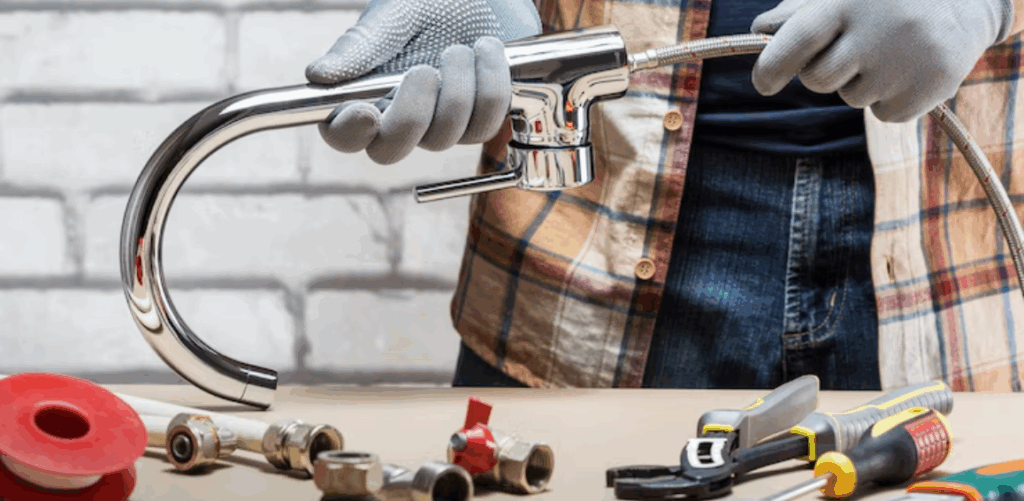
Make sure the contract explains the process for filing a warranty claim—who to contact, how long it takes, and what documentation you need. Having all this in writing avoids confusion and ensures support after the job is finished.
Warranties are a crucial part of service quality, and you deserve full clarity on them before signing a contract.
6. Payment Terms and Schedule
Before signing a contract, make sure the plumber provides full transparency on payment terms and schedules. This includes how much is due upfront, when progress payments are required (if any), and the final balance due upon completion. A clear payment structure helps avoid disputes and sets mutual expectations.
If the plumber accepts digital payments, they should disclose the payment gateway they use—whether it’s Stripe, Square, or another platform. This matters because customer data must be handled securely. Any digital system used should be PCI-DSS compliant to protect sensitive billing information. It’s especially critical when dealing with stored cards or recurring billing.
Ask about any credit card processing fees or credit card surcharges that could be added to your total cost. Additionally, ensure they offer eReceipts or digital invoices for clear, trackable billing records.
All of these details must be in writing before signing a contract, so you’re fully aware of how and when payments are expected—and how securely they’ll be handled.
7. Permits and Code Compliance
Before signing a contract, confirm who will handle securing the necessary plumbing permits. In most cases, the plumber is responsible for this, but never assume—it should be clearly stated in writing. Without proper permits, you could face fines or delays, especially if inspections are required for code approval.
Also, ensure the contractor guarantees all work will comply with local plumbing codes. This ensures the job is legal, safe, and up to standard. Non-compliant work may result in failed inspections or costly do-overs.
Lastly, make sure the plumber discloses if any parts of the job are outside the scope due to zoning laws, permit restrictions, or other limitations. Knowing what’s covered (and what’s not) avoids surprises later. These disclosures are essential before signing a contract to ensure compliance and protect your investment.
8. Cleanup and Disposal Responsibilities
Cleanliness counts, especially after plumbing work. Before signing a contract, ask whether post-job cleanup is included. A reputable plumber should leave the area as clean as they found it—or better. Clarify what’s covered: sweeping, sanitizing, or hauling debris.
Discuss the removal of old pipes, fixtures, or broken appliances. Some plumbers include this service, while others charge extra. Be sure to ask if dumping fees or disposal charges will be added to your final bill.
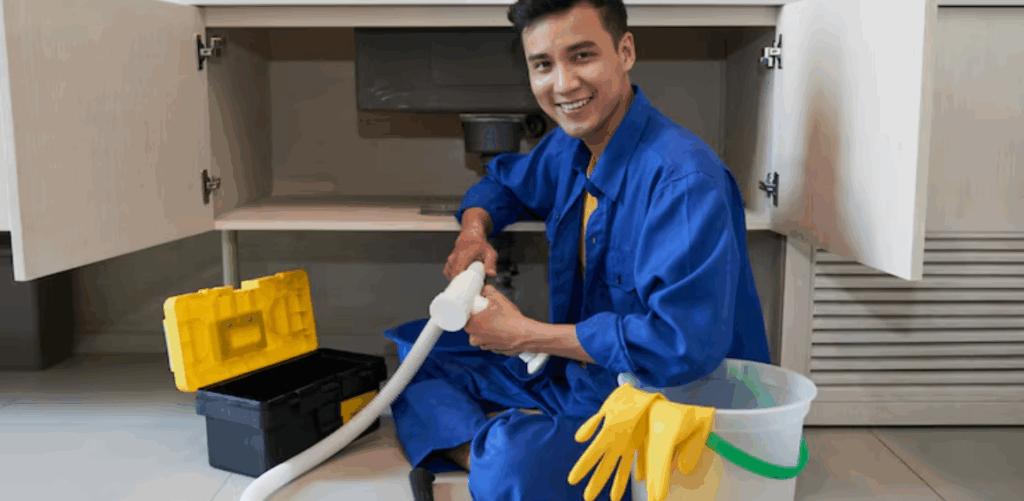
Having this spelled out in your contract ensures there are no surprises, and you’re not left dealing with leftover debris. Responsible cleanup and transparent charges are key parts of any plumbing agreement—and should be confirmed before signing a contract.
9. Emergency Service Terms (If Offered)
If your plumber offers emergency services, get the terms in writing before signing a contract. Emergencies are stressful—you don’t want confusion about pricing or response times when you’re knee-deep in a plumbing crisis.
Request details on hourly rates for after-hours or weekend calls, as well as response time guarantees. Some professionals offer a window of service (e.g., within 2 hours), which should be clearly defined.
Also, ask if emergency repairs are covered under the main contract or billed separately. This distinction can affect how quickly you act in a crisis. Knowing the fine print before signing a contract ensures faster, smarter decisions during emergencies.
10. Dispute Resolution and Termination Clauses
Even with a solid agreement, things can go sideways. That’s why you need clear dispute resolution and termination clauses before signing a contract. If either party wants to cancel the agreement, what’s the process? Who pays for partially completed work?
Look for terms about mediation, arbitration, or legal actions. A contract should outline steps both sides agree to follow in case of disagreement.
Make sure the plumber discloses refund policies, including penalties for late payments or service non-compliance. These clauses protect both parties and help prevent conflicts from escalating.
It’s better to review these details upfront than deal with misunderstandings later. Every well-drafted plumbing agreement should include dispute protocols before signing a contract.
Red Flags Homeowners Should Watch For
Watch out for anything that may suggest the deal isn’t fair before you sign the contract. A lack of itemized prices for materials and work involved is a warning sign. If a plumber doesn’t explain exactly what has to be done, hidden expenses may come up later.
Check that the contractor has current licenses and insurance. Outdated or missing paperwork means the service may not meet the required standards. A homeowner is not legally protected by a written warranty or a poorly defined verbal statement made by the seller.
If the plumber evades giving you references or a copy of the contract, it is probably a sign you should be cautious. Honest professionals will be open to transparent sharing of information. Seeing these issues should cause you to reconsider before signing a contract.
Benefits of Full Transparency in Plumbing Contracts
Being honest with each other helps both people and strengthens trust over time. When you understand all the terms in a contract before signing, chances of misunderstandings or extra expenses are low.
Telling the homeowner all the important details like licenses, warranties, how they should pay and the schedule makes them feel at ease. They are sure about the pricing, the workers on the job and how to fix possible problems.
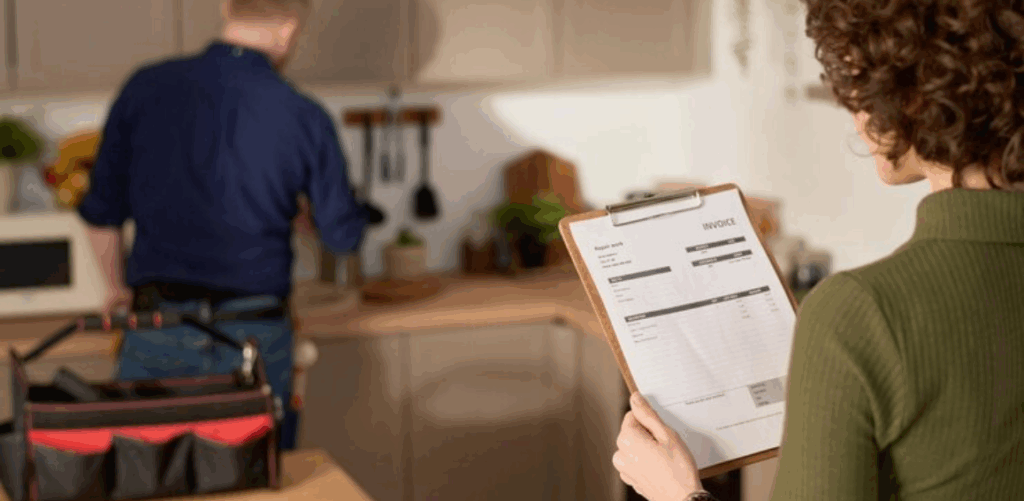
When their contracts are clear, plumbers earn good reviews, attract new projects and receive positive referrals. It provides an extra legal defense if there are disputes. Check this guide if you are figuring out how to get building permits in Delaware for new projects.
Basically, having clear communication and transparency helps both the parties. It helps both the client and the contractor, making a one-time project become a trusted working relationship.
Conclusion
Signing a contract is important when it comes to plumbing because it acts as your protection. Homeowners should feel comfortable asking any questions they have and whether full disclosure is available throughout the job. It’s your right to find out the complete costs, when the work will be done, how to pay, what warranty applies and what are the expectation from both the parties
A professional plumber will always be upfront with licenses, references, and service guarantees. Transparency isn’t just a good business practice—it’s a sign of integrity and accountability.
Before signing a contract, take time to review each clause. It’s worth visiting your state’s licensing portal or a certified plumber directory to ensure you’re hiring a credible expert. In the end, a clear, honest agreement helps prevent conflict, protect your home, and ensure high-quality service.
Frequently Asked Questions
1. Why is it important to review everything before signing a contract with a plumber?
Because it protects you legally, clarifies expectations, and prevents surprise charges or incomplete work.
2. Should a plumber provide a license number before signing a contract?
Yes. Valid licenses ensure your plumber is certified and follows local plumbing codes.
3. What if a plumber refuses to provide a written contract?
Consider it a red flag. Never start work without a written agreement before signing a contract.
4. Are verbal agreements enforceable in plumbing services?
Rarely. Always insist on a written document before signing a contract to avoid legal ambiguity.
5. Is it safe to pay digitally for plumbing services?
Yes, but only through secure, PCI-compliant payment gateways like Stripe or Square. Confirm details before signing a contract.



